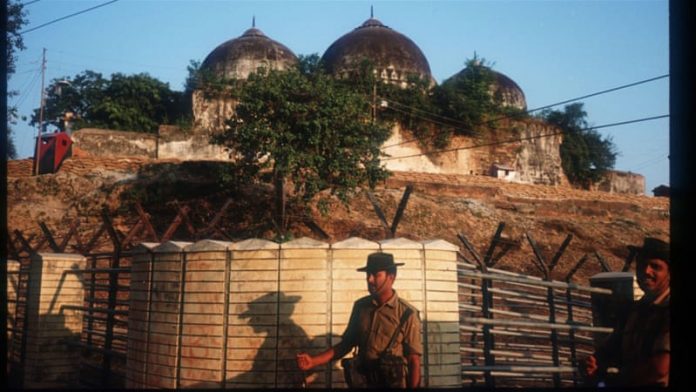NEW DELHI: Adjudication of the politically sensitive Babri Masjid case will be delayed as the Supreme Court on Friday said it will first decide whether the apex court’s 1994 decision that a “mosque is not an essential part of Islam” needs to be re-examined by a Constitution bench.
A bench of Chief Justice Dipak Misra and Justices Ashok Bhushan and S Abdul Nazeer said it would examine whether a five-judge bench was required to go into the question of whether a mosque was integral to Islam, but they turned down the demand that the 70-year-old legal battle between Hindu and Muslim communities over ownership of the nearly 3 acres of Babri Masjid land be also referred to a larger bench.
Senior advocate Rajeev Dhavan, representing one of the original plaintiffs, M Siddiq, now replaced by his legal heir after his death, said the entire case should be referred to a Constitution bench.
“Why should only one part and not the entire case be referred to a Constitution bench,” he asked. Lawyers appearing for those who have claimed the Ayodhya site for construction of a Ram temple objected to reopening of the ‘Ismail Faruqui case’ of 1994 and said there was no need to refer any issue to a larger bench.
The present three-judge bench should proceed with the Babri Masjid case, they contended. However, the bench said it was necessary to examine the plea raised by the Muslim community contending mosque as a place of worship was a fundamental feature of Islam.
“First, we must put the controversy (over whether mosque is essential to Islam) to an end,” said the bench, which had earlier referred to the decades-old legal battle as a mere “land dispute.”





